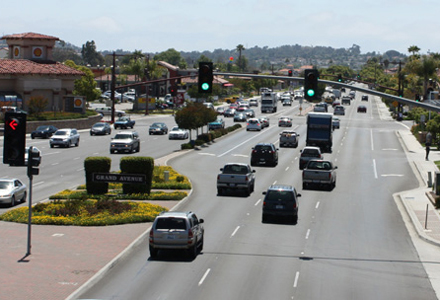
In 2007 in Atlanta, Georgia, it took over four hours to open the road after a major commercial vehicle incident. Not any more…
Four years ago the
That same year,
These major events seriously disrupt traffic, causing long motorist delays, polluting the air, and creating significant safety hazards.
The solution was simple and logical in concept: implemented in January 2008, the Towing and Recovery Incentive Programme (TRIP) pays qualified heavy-duty towing and recovery companies monetary bonuses for the quick clearance of large commercial vehicle incidents.
Project:
Towing and Recovery Incentive Programme (TRIP)
Cost:
US$835,000 - total programme cost 2007 - end 2010
Benefits:
• Average incident cost cut by 71 per cent
• Average duration of incidents cut from 269 to 106 minutes
• Cost benefit ration 11:1
• Significant savings of lost time, wasted fuel and excess emissionsThe results have been very impressive and this award-winning scheme continues to deliver.Not every large vehicle incident receives the TRIP treatment – the system can only be activated by designated personnel based onspecific criteria and procedures. However, once activated, the selected towing company must arrive at the scene with all basic equipment within pre-set time schedules and must remain there until given official notice to clear the incident. Having received this, the company must have the roadway cleared and open to traffic within 90 minutes.
As Delcan’s Christine Macaulay Simonton, who served as the project manager responsible for programme development, implementation, management and maintenance, points out, great incident management programmes don’t happen overnight: “Inter-agency trust is based on cooperation, coordination and communication and can take months, even years, to develop and fortify. TRIP is based on strong partnerships with all local agencies and has created an environment where the towing and recovery operator is a valued team member at an incident scene.”
Collaboration
TRIP resulted from collaboration between Delcan, the
Dramatic results
The results of this programme since its inception have been dramatic. TRIP reduced the average duration of commercial vehicle incidents in metro Atlanta from 269 minutes in 2007, to 106 minutes in 2011.
With a benefit-to-cost ratio of 11:1, TRIP has demonstrated an enormous value to the motorists of metro Atlanta, including average cost savings of $456,216 per incident. Earlier this year, GDOT performed an independent study that found TRIP has reduced the average incident cost by 71 per cent.
Notably, TRIP’s goal of reducing the clearance time of large commercial incidents also reduces the cost of these incidents in terms of lost time, wasted fuel, and excess emission. Further information on TRIP is available on the Metro Atlanta’s Traffic Incident Management Enhancement (TIME) Task Force website.











